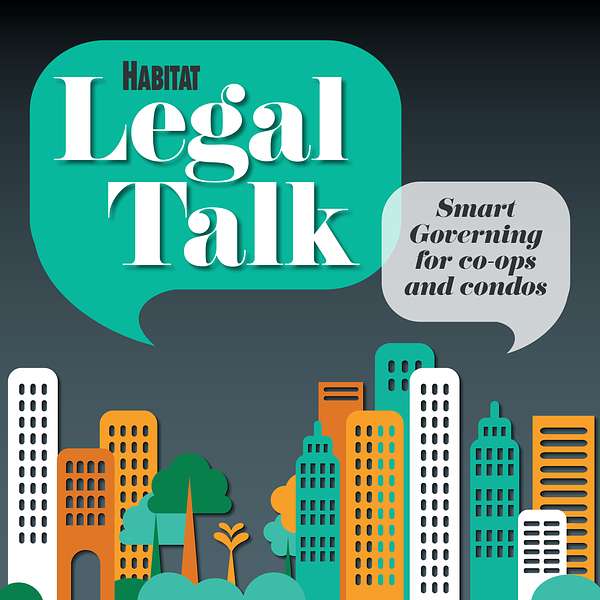
Legal Talk for Co-ops and Condos
Co-op and condo board directors face a myriad of challenges they are not equipped to solve, and taking action can be a fraught experience. In this series, Habitat Magazine editors interview New York's leading co-op/condo attorneys for guidance on these challenges. Habitat, a New York City publication founded in 1982, is edited for co-op and condo board directors, property managers, and other professionals.
Legal Talk for Co-ops and Condos
For Co-ops: How To Distribute Proprietary Lease Changes
•
Legal Talk by Habitat Magazine
•
Season 2
•
Episode 4
Use Left/Right to seek, Home/End to jump to start or end. Hold shift to jump forward or backward.
Andrew Brucker, partner, Armstrong Teasdale, is interviewed by Habitat Magazine’s Carol Ott.
Board lessons to learn:
- For minor changes. If it’s just an amendment, send out a short one- or two-page replication of what was changed, and say, “Please staple this to your proprietary lease.” You have to do this because if you ever end up taking a shareholder to court for violating this change, a judge is going to say, “But they never got a copy.”
- When the change is big. We create a brand new lease called an “amended and restated lease.” It’s the new lease with all the provisions. And we ask everyone to re-sign it.
- When the bank has the lease. If shareholders have financed their purchase, the bank has the original lease. So they should communicate with the bank, get the old lease and replace it with the new one. Banks don’t really care about changes unless it affects them in some way, so that could be a problem. But in most cases, you’re not going to make major changes everywhere. You’re going to change two, three or maybe four provisions.
- Why bother with changes in the first place. Simple. Times change, and provisions need to be updated every five or 10 years.
**Music by 4 AM Party by Alex Gross licensed under a Attribution-NonCommercial-NoDerivatives 4.0 International License.
The business of running a building is demanding work that requires making endless decisions — some that can quickly lead your board into a quagmire of legal difficulties. Legal Talk interviews New York's leading co-op/condo attorneys to find solutions, and get some guidance, on these challenges. For more co-op and condo insights, sign up to receive Habitat's free newsletters or become a Habitat subscriber today!